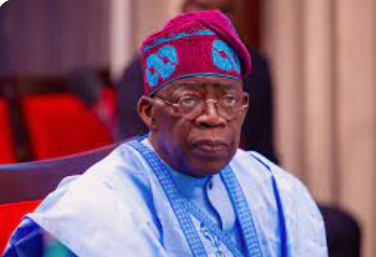
Tinubu said this when he received the Special Envoy of the President of Equatorial Guinea, Teodoro Obiang Nguema Mbasogo, at the State House, Abuja.
A statement signed by his Special Adviser on Media and Publicity, Ajuri Ngelale, explained that Tinubu was responding to a request for a state visit from President Mbasogo, presented by his Special Presidential Envoy and Minister of Foreign Affairs, Simeon Oyono Esono Angue.
The statement is titled ‘Nigeria reaffirms commitment to enhancing maritime security in gulf of Guinea.’
Mbasogo had emphasised the need to revitalise the Nigeria-Equatorial Guinea Joint Commission.
He also harped on the importance of fostering greater cooperation in various sectors, including oil and gas, and trade.
Responding, Tinubu “reaffirmed Nigeria’s commitment to enhancing maritime security and safety in the Gulf of Guinea,” said Ngelale.
He highlighted the longstanding bilateral ties between Nigeria and Equatorial Guinea, describing the relations as “strong and brotherly.”
The Nigerian leader recalled his previous meeting with President Mbasogo, during which they discussed strategies for enhancing economic relations, particularly in the context of ocean and marine economy, and collaborating to address the challenges posed by climate change.
Tinubu expressed confidence that the formal meetings between the two nations would lead to further strengthening of their relationship
He said, “Nigeria and Equatorial Guinea are brotherly nations, and we enjoy very longstanding mutual relations.
“I am sure when next we meet formally; the relationship between our countries will grow from strength to strength.”
Nigeria and Equatorial Guinea share a common maritime boundary linked by close exclusive economic zones.
Both countries have, in the past, established partnership primarily focused on energy cooperation, maritime security and economic diversification.
Their relationship is largely linked to their status as significant oil producers in Africa, leading to collaborative efforts in ensuring regional energy market stability.
Both countries have also joined forces to tackle maritime security threats, such as piracy, to protect their economic interests in one of the world’s most challenging maritime environments.
In April 2023, former President Muhammadu Buhari had attended the Third Extraordinary Session of the Assembly of Heads of State and Government of the Gulf of Guinea Commission, convened by President Nana Akuffo-Ado of Ghana.
As one-time Chair of the Assembly, Buhari had championed collective efforts by Member States of the region, the Economic Community of Central African States, the Economic Community of West African States, the Gulf of Guinea Commission and their partners to address and prevent piracy.
In June, 2019, Nigeria’s 10th National Assembly passed the Suppression of Piracy and Other Maritime Offences Act, 2019, which aims to prevent and suppress piracy, armed robbery and other unlawful acts against vessels.










